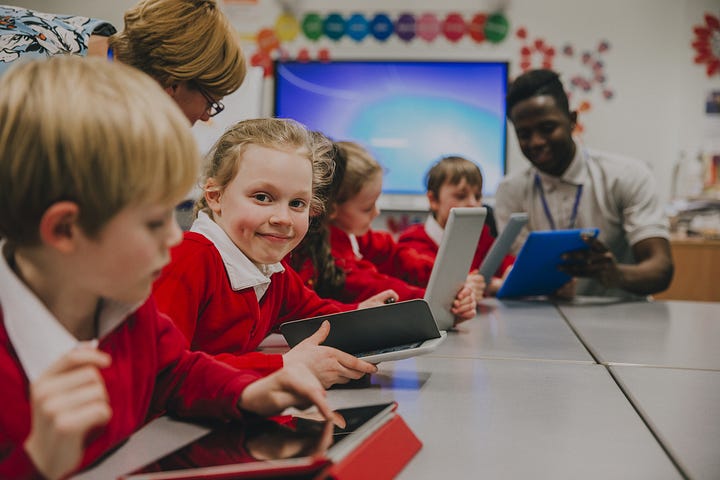Technology allows countries, individuals, societies and businesses to leapfrog and fast track themselves into the 21st century and Africa as a continent is no exception. Even though, decades ago, when the world was changing from mechanical and analogue systems to digital electronics, Africa was nowhere on the scene. But fast-forward to the present, and Africa has become a keen adopter and innovator in all things digital and mobile.
In the early 2000, the Economist, a well-respected magazine labeled the entire continent of Africa as the Hopeless continent, but their tone changed just a couple years after their depressing diagnosis. Now two decades after their initial bleak diagnosis and Africa is more peaceful, more smarter, and more technologically advanced than anyone could have imagined. Africa is an amazing come back story and we’re just getting started.
Let me ask you a question, have you been labeled and called names? Have you been rejected, ostracize, misunderstand, and given up on? If so, may Africa’s rise inspire you to never allow people’s opinions become your reality. Africa is the Future, Africa is rising and so are you. And if you agree with me, hit that like button and don’t forget to subscribe to my channel for more amazing content just like this one.
There have been many revolutions in the past but Africa as a continent has never been opportune to participate as in now. The tides are turning, and Africa is changing faster and more furiously than many imagined. Africans are waking up to their true potential and acting like equals in business, government, and culture. It is no longer about us fighting for a place at the table, no, we are building our own table, we are telling our own stories, and we are creating our own unique innovations to solve our own problems.
The question is, What happened? How did the hopeless continent become the hopeful continent, an awakening giant? Well, the Mobile phone happened. The Internet happened. And little did we realize that the revolution had begun, although it would be a decade since the mobile landed before the tsunami arrived…and now its here in full force. The Mobile phone is the one input that has disrupted much of African culture, business, and politics. The mobile phone is the one meaningful change in the algorithm of Africa that no one expected it’d have the impact is has so far.
According to McKinsey, the number of smartphone connections on the continent is forecast to double from 315 million in 2015 to 636 million in 2022—twice the projected number in North America and not far from the total in Europe. Mobile technology is allowing tech-savvy Africans to leapfrog western developers in some areas to develop innovations that solves real-life problems. Young people are hungry for change and Entrepreneurship is booming across the continent.
Mobile technology has been a game changer for Africa and the major reason for mobile phones’ ability to transform Africa so successfully is that they serve as the primary platform for Internet access. The mobile phone is more than just a communication tool for many Africans. For many of us “the mobile phone is our landline, our bank account, our ATM, email, our torch light, and much more in one device. As mobile phones become more widespread and less expensive the digital divide will be reduced and more African citizens will have even more access to technology and home-grown innovations.
Mobile phone penetration is skyrocketing throughout the continent. Mobile phone penetration in Africa increased rapidly in the past 2 decades, going from 1% in 2000 to 13.5% in 2011 and 29.3% in 2016. And as of 1st quarter of 2020, the internet penetration rate in Africa stood at 39.3%, meaning that roughly four in 10 people on the continent used the web according to Statista Reports.
Although internet penetration is growing fast, many Africans still don’t have access to the internet or the mobile phone. Yes, all is not perfect in paradise. Africa has a huge infrastructure problem. Data from the World Economic Forum indicates that, Two-thirds of Africans still lack internet access altogether and internet data is still significantly slower and more expensive on the continent than other parts of the world. This lack of infrastructure represents a barrier to full blown development. In some African countries more people have access to a mobile phone than to clean water, a bank account or electricity. However, challenges don’t mean there’s no progress and progress don’t eliminate challenges. In fact, challenges are the birthplace of innovation. And in my opinion, our myriad of problems are our biggest advantage. Do you agree? Or do you disagree…Share your thoughts in the comment section below.
And so, here’s an important message to those who still don’t believe in Africa or those who see Africa only through the eyes of Western media:
Africa is indeed rising. Africa is changing her narrative to building creative innovative solutions and development projects. Africa is shifting from rumors of wars, reports of wars, conflict, corruption, poverty, diseases, and viruses. Nowadays, Diseases and viruses are no longer an African thing. It seems every country has a virus or some form of diseases. (no pun intended). We’re all wearing masks…aren’t we?...smile
People who keep misunderstanding Africa run the risk of missing out on one of the 21st century’s greatest economic success opportunities. Africa may be the last continent to undergo rapid economic development but last doesn’t always mean least or hopeless.
Africa is one of the fastest growing mobile regions in the world and has also become a cradle for creative innovative solutions. Africa is also the fastest growing and second largest mobile phone market in the world. And this has created an entirely new platform for citizens to build innovative solutions. Africa is one of the biggest emerging markets in the world, offering tremendous opportunities for people and businesses who are brave enough to seize them. The adoption of the mobile phone and other emerging technologies together with truckloads of problems are making the continent a fertile arena for creative innovations.
It is also important to note that Africa now boasts the fastest growing middle class in the world, and despite the impact of Covid19 pandemic, 6 of the top 10 fastest growing economies in the world are still in Africa and with the majority of Africa’s population still under the age of 35, this revolution is unstoppable!
Africa offers exciting opportunities not only for business but also for people who want to start over in life, those who want to be part of changing the African narrative and build a legacy on the continent. Yes, Africa’s population is young, ambitious, hungry for change, fast-growing, creative and innovative. Hence, technology adoption is helping African young entrepreneurs to solving infrastructure challenges across the continent. Massive urbanization and the rapid rise of the middle-class on the continent are changing Africa's economic landscape and this in itself is a topic for another day.
The key to Africa’s achieving its own digital revolution has been innovation at every step, with inventors and innovators adapting mobile technology to suit the specific needs and dynamics of the continent instead of copying innovation from other parts of the world that may or may not be relevant to the needs of Africa
Mobile technology has pioneered new innovations in Africa and Kenya’s economy is a shining example.
M-Pesa, the mobile phone–based money transfer service launched by Kenya’s mobile network operator Safaricom, is by far the most famous and successful mobile money innovation not only in Africa but around the world.
Building on that model, young African software developers are building innovative solutions to everyday problems on the continent. Mobile innovation provides an important avenue for African economies to leapfrog not only financial development but also development across other sectors of the economy like agriculture, healthcare and education. Mobile innovations are a success in Africa because the younger demographic is more ready and eager to adopt new technologies compared to aging populations in developed countries.
What do you think about Africa’s digital revolution?











